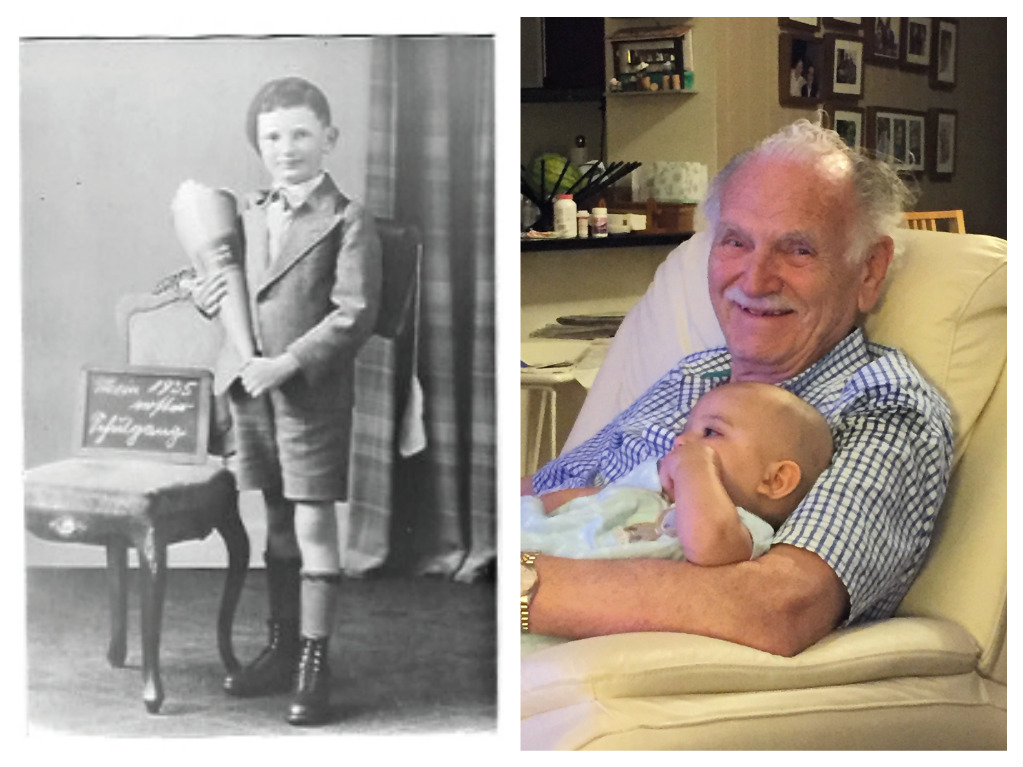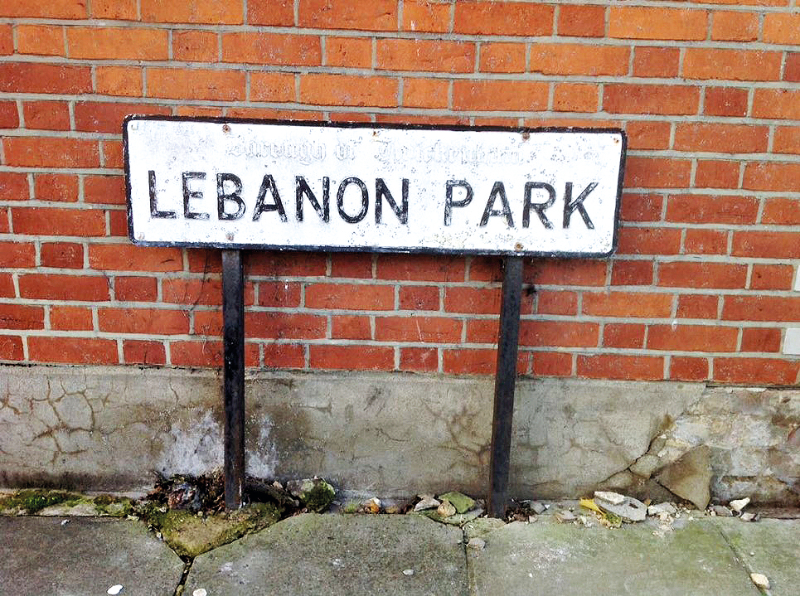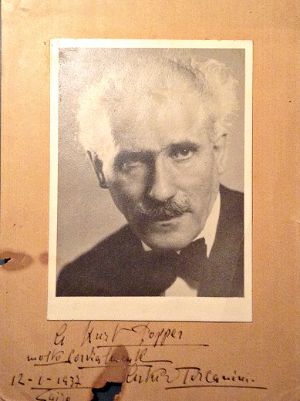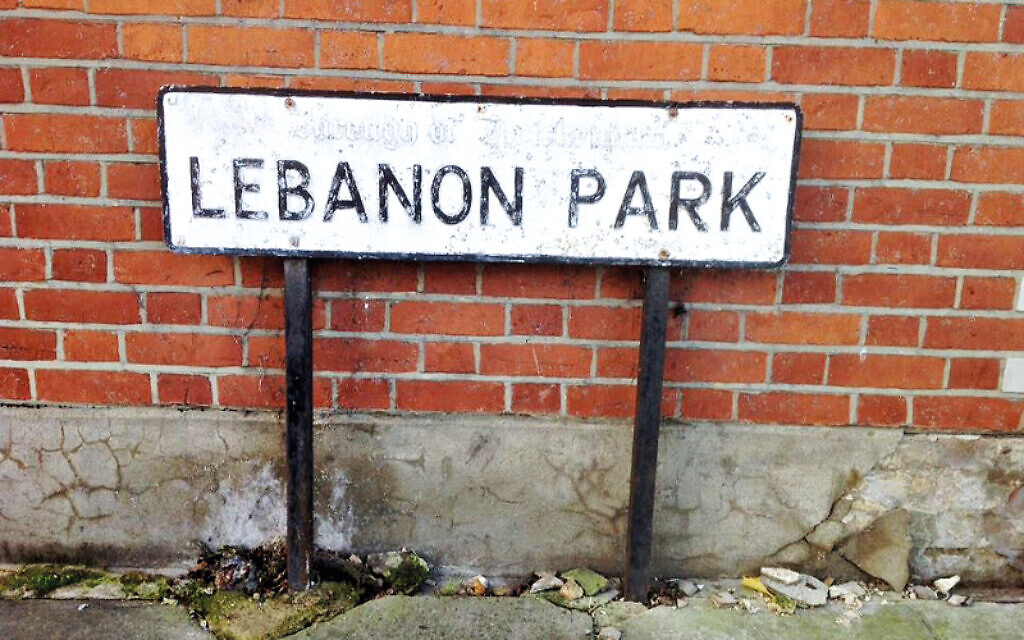The Twickenham Kinderhostel
Schoolchildren turned detective to reveal how a group of Jewish boys stayed at a ‘Kinderhostel’ in south-west London following their escape from the Nazis
It began when three Year 9 pupils from Hampton School in Middlesex – Oscar, Felix and Josh, none of whom is Jewish – were working on an extra-curricular history project several weeks ago, doing research for foundation stones for the proposed Holocaust Memorial in Westminster.
They came across a map of their home area which included a reference to a “Kinderhostel” in Lebanon Park in nearby Twickenham.
“We hadn’t heard of ‘Kinderhostel’ from research and couldn’t find any reference to it in school or library books,” recalls history teacher Andy Lawrence. “Not even the university historians had heard of the house or knew anyone who lived there. It was a mystery.”
Get The Jewish News Daily Edition by email and never miss our top stories Free Sign Up
The boys’ first breakthrough came when they found a database that mentioned a Kinderhostel at 52 Lebanon Park. Against the address there was an entry with some incomplete details about a boy who lived there. While there was no name, there was a date of birth: 7 February 1929. The entry said the boy came to Britain from Germany in April 1939, suggesting that he arrived on the Kindertransport.
It was enough information for the boys to write to the Wiener Library in London, home of the world’s biggest Kindertransport archive.
“A few days later they got a reply,” said Lawrence. “It said the details matched those of a boy called Gunter Ruf, born in the town of Herne in Germany, who may later have emigrated to the United States.”
Why did Gunter flee Herne, and where did he go after Twickenham? To find out the boys contacted local historians in Germany, where Gunter was born, as well as US Holocaust museums and the Kindertransport Association in New York.
They heard nothing for more than a fortnight. Then they received an email.
“My name is George Ruf (Gunter in Germany) and I was born in Herne, Germany on 7 February 1929, so I think I am the ‘boy’ you are looking for! While I was in the hostel in Lebanon Park, I went to school first at St Mary’s Primary School in Twickenham and from there to Orleans School from 1939 to 1943.”
Jaws dropped. St Mary’s Primary School is where all three of the boys went.
George, by now a grandfather, said he would tell the boys whatever they wanted to know about his life, and the questions flooded in. Gradually the three built up a picture of Gunter, who had changed his name because “it sounded too German”.

Growing up in Herne, he was desperate to swim in the local swimming pool but wasn’t allowed to do so, because he was Jewish. He was nine when Nazi thugs smashed all the windows of his parents’ shop on Kristallnacht, night of the broken glass, in November 1938.
The next day, his family went to live with Mr Ganz, president of Herne’s Jewish community, but five days later his father was taken to a concentration camp. On 19 April 1939, his mother and siblings took him to Dortmund railway station and put him on a train to Holland. He was allowed to take a suitcase with just a few clothes. It was the last time he ever saw his mother.
He was one of ten boys at the hostel, and enjoyed life there, “always expecting his family to join him there soon”. He stayed in a room with two other boys. It was there that he had his first encounter with porridge, and tea with milk.
He left St Mary’s for Orleans Park when he was 14, and aged 18 he rode a motorbike across Europe, returning briefly to Herne where he met old neighbours. He then joined the British Army and served in Hong Kong and Singapore before moving to Ecuador to manage a factory. Finally, he settled in the US.
The Hampton School students were thrilled, but knew that George had not been at Lebanon Park alone, and wanted to trace others. They asked the Association of Jewish Refugees to put an appeal for information in their newsletter, which it did.
Soon the pupils were contacted by Helen Levy. Her stepmother, Margot Brauer, had worked at Lebanon Park, looking after the boys who lived there. Margot had herself escaped from Nazi Germany in 1938, aged 18.

Helen remembered that Margot stayed in touch with some of the Jewish boys she had looked after, including Freddy Popper, whose son Michael had become a dancer, choreographer and artist. The boys contacted Michael’s agent. Soon Michael was telling them about his father.
Born in Vienna in June 1928, Freddy was born into a middle-class family that had a rich musical heritage. He and his mother escaped in 1939 and made their way to London where Freddy lived at the hostel in Lebanon Park.

When Freddy left the house in December 1944 he found work as a tailor, before becoming a pattern cutter. After travelling around the country for work, he settled back in the borough of Richmond, living in St Margaret’s from the early 1990s until he died.
“We think it is important to know about the story of the boys of Lebanon Park because it has never been told before,” said Josh. “More than that, it is important because it shows that – far from being something that happened a long time ago and far away – the Holocaust came closer to us all than we think.”
• Can you help Oscar, Josh and Felix to find out about the other boys who spent time at the Kinderhostel at Lebanon Park after fleeing the Nazis? Please contact Mr Lawrence at Hampton School if you remember Fred Pauker, Emil Haber, Gerald & Harold Ohrbach, Ralph Metzger, Frank Reichmann and/or Kurt Kristeller

Thank you for helping to make Jewish News the leading source of news and opinion for the UK Jewish community. Today we're asking for your invaluable help to continue putting our community first in everything we do.
For as little as £5 a month you can help sustain the vital work we do in celebrating and standing up for Jewish life in Britain.
Jewish News holds our community together and keeps us connected. Like a synagogue, it’s where people turn to feel part of something bigger. It also proudly shows the rest of Britain the vibrancy and rich culture of modern Jewish life.
You can make a quick and easy one-off or monthly contribution of £5, £10, £20 or any other sum you’re comfortable with.
100% of your donation will help us continue celebrating our community, in all its dynamic diversity...
Engaging
Being a community platform means so much more than producing a newspaper and website. One of our proudest roles is media partnering with our invaluable charities to amplify the outstanding work they do to help us all.
Celebrating
There’s no shortage of oys in the world but Jewish News takes every opportunity to celebrate the joys too, through projects like Night of Heroes, 40 Under 40 and other compelling countdowns that make the community kvell with pride.
Pioneering
In the first collaboration between media outlets from different faiths, Jewish News worked with British Muslim TV and Church Times to produce a list of young activists leading the way on interfaith understanding.
Campaigning
Royal Mail issued a stamp honouring Holocaust hero Sir Nicholas Winton after a Jewish News campaign attracted more than 100,000 backers. Jewish Newsalso produces special editions of the paper highlighting pressing issues including mental health and Holocaust remembrance.
Easy access
In an age when news is readily accessible, Jewish News provides high-quality content free online and offline, removing any financial barriers to connecting people.
Voice of our community to wider society
The Jewish News team regularly appears on TV, radio and on the pages of the national press to comment on stories about the Jewish community. Easy access to the paper on the streets of London also means Jewish News provides an invaluable window into the community for the country at large.
We hope you agree all this is worth preserving.
-
By Laurent Vaughan - Senior Associate (Bishop & Sewell Solicitors)
-
By Laurent Vaughan - Senior Associate (Bishop & Sewell Solicitors)
-
By Laurent Vaughan - Senior Associate (Bishop & Sewell Solicitors)
-
By Laurent Vaughan - Senior Associate (Bishop & Sewell Solicitors)






















